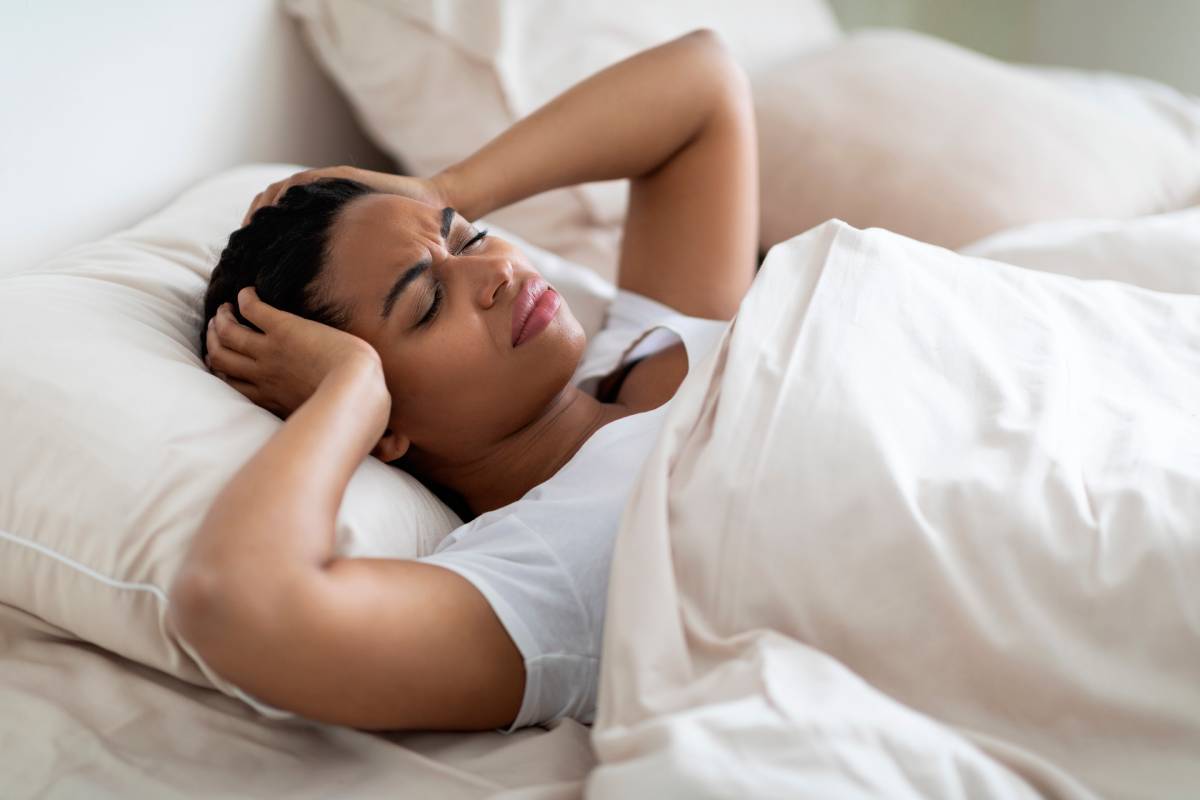
In a world where productivity is glorified and mornings are seen as the secret to success, many people aIn a world where productivity is glorified and mornings are seen as the secret to success, many people are trying to become “morning people.” You’ve probably heard about CEOs who start their days at 5 a.m., the 3/2/1 bedtime rule that’s gone viral on TikTok, and the growing belief that an early wake-up equals a better life.
But is waking up before dawn really healthy? And how can you make it happen without feeling like a zombie? Let’s explore the science behind the 3/2/1 bedtime rule, the truth about 5 a.m. wake-ups, and how to train your body to wake up early without hating mornings.
Understanding the 3/2/1 Bedtime Rule
The 3/2/1 bedtime rule is a simple evening routine designed to help you sleep better, fall asleep faster, and wake up feeling more refreshed. It’s a formula for gradually winding down your body and mind, rather than collapsing into bed with your phone still glowing in your hand.
Here’s how it works:
3 hours before bed:
Stop eating heavy meals or drinking alcohol. Eating too close to bedtime can cause indigestion, acid reflux, or spikes in blood sugar, which can make it harder to fall asleep. Alcohol, though it might make you sleepy, actually disrupts REM sleep, the stage when your brain processes memories and restores energy.
2 hours before bed:
Stop working or doing mentally demanding tasks. This is your time to disconnect from work, screens, or stressful conversations mentally. Answering emails, studying, or planning tomorrow’s to-do list keeps your brain active and can delay melatonin production, the hormone that signals your body it’s time to sleep.
1 hour before bed:
Put away screens and start relaxing. Blue light from phones, computers, and TVs suppresses melatonin and tricks your brain into thinking it’s still daytime. Instead, use this hour for calm activities: read a physical book, stretch, meditate, or take a warm shower. This helps signal your body that it’s time to wind down.
This rule, popularized by wellness experts like Dr. Jess Andrade on social media, isn’t just a trend; it’s based on solid sleep science. It helps align your circadian rhythm (your body’s natural sleep-wake cycle) so you fall asleep more easily and get deeper, restorative rest.
Why Sleep Hygiene Matters
Many people underestimate how much their nighttime habits affect their mornings. You can’t expect to wake up at 5 a.m. feeling great if you scroll TikTok until midnight.
The 3/2/1 rule creates consistency, and consistency is what your brain thrives on. Over time, your body starts to associate certain cues, like dim lighting or reading, with sleep. This makes falling asleep easier and waking up more natural.
Good sleep hygiene, combined with the right bedtime routine, sets the stage for productive mornings, especially if you’re trying to adopt an early wake-up schedule.
Is Waking Up at 5 a.m. Healthy?

The idea of waking up at 5 a.m. is often romanticized by self-improvement influencers and business leaders. They claim it gives them more time to exercise, meditate, read, or get ahead on work before the world wakes up.
But is it really healthy for everyone? The answer depends on your chronotype, your body’s natural preference for sleeping and waking times.
1. Early birds vs. night owls
Some people are naturally “early birds” who feel most alert in the morning, while others are “night owls” who perform better in the evening. Forcing yourself to wake up at 5 a.m. if you’re a natural night owl can backfire, leading to sleep deprivation, fatigue, and lower productivity.
2. The real secret: consistency
Health experts agree that when you wake up isn’t as important as how consistently you wake up. Waking up at 5 a.m. every day is fine if you’re also sleeping by 9 or 10 p.m. But if you’re going to bed at midnight and still trying to wake up at dawn, your body won’t get enough restorative sleep.
The Centers for Disease Control and Prevention (CDC) recommends 7–9 hours of sleep for most adults. So, if you want to wake up at 5 a.m., you should ideally be asleep by 9:30–10 p.m.
3. Potential benefits of waking up early
For those who can make it work, early mornings can be incredibly beneficial:
- Fewer distractions and a calm environment
- Better time for exercise or meditation
- A mental boost from seeing the sunrise
- Improved focus and self-discipline
Studies show that people with regular early routines often experience better mental health, lower stress, and higher productivity, but only if they also maintain adequate sleep.
The link between mental health, waking up early, and consistent rest is well-documented. People who maintain regular early routines tend to report more emotional stability, less anxiety, and greater overall life satisfaction. Waking up early gives you a sense of calm and control that can positively shape your mood for the rest of the day.
How to Force Yourself to Wake Up Early (and Actually Like It)
If you’ve ever tried to wake up early and failed miserably, you’re not alone. Changing your sleep schedule is hard, but not impossible. It’s about creating habits that make early mornings natural instead of painful.
Here’s how to do it step by step.
1. Adjust your bedtime gradually
Instead of suddenly trying to sleep at 9 p.m., move your bedtime earlier by 15–30 minutes each night until you reach your desired wake-up time. This gradual adjustment helps your internal clock reset without causing exhaustion or frustration.
2. Follow the 3/2/1 rule consistently
The 3/2/1 rule isn’t just about falling asleep faster; it’s about setting a rhythm. If you stop eating 3 hours before bed, quit working 2 hours before, and power down screens 1 hour before, your body will start recognizing these cues as a signal for rest.
Use this as your nightly ritual to train your brain for better sleep quality.
3. Create a reason to wake up early
You’re more likely to get out of bed if you have a reason to. Plan something enjoyable in the morning, like a walk, a favorite breakfast, or quiet journaling time. This positive association helps your brain look forward to mornings instead of dreading them.
4. Use light to your advantage
Light is the strongest cue for your body’s internal clock. To wake up more easily:
- Open your curtains as soon as you wake up.
- Use a sunrise alarm clock that gradually brightens your room before your set time.
- Get morning sunlight exposure for at least 10–15 minutes; it helps regulate melatonin and boosts alertness.
5. Avoid the snooze button
Hitting snooze repeatedly confuses your brain and prevents you from entering deep rest. When your alarm goes off, count “3-2-1” and sit up immediately. Place your alarm or phone across the room so you’re forced to stand up to turn it off.
6. Build a morning routine you enjoy
Early mornings should feel rewarding, not punishing. Use your extra time for something meaningful:
- Gentle stretching or yoga
- Reading or journaling
- Drinking coffee slowly while watching the sunrise
- Planning your day or practicing gratitude
When mornings are peaceful and fulfilling, you’ll be more motivated to wake up early again.
7. Stay consistent even on weekends
One of the biggest mistakes people make is sleeping in on weekends. This resets your body clock and makes Monday mornings miserable. Try to keep your sleep and wake-up times within one hour of your weekday schedule, even on days off.
What to Do If You Still Struggle to Wake Up Early
If you’ve tried all the tips and still can’t wake up early, there might be underlying issues affecting your sleep:
- Sleep disorders like insomnia or sleep apnea
- Poor sleep environment (too much light, noise, or an uncomfortable mattress)
- High stress or anxiety levels that make it hard to relax at night
You may want to consult a sleep specialist to evaluate your sleep quality. Sometimes, improving your sleep environment or addressing stress can make early wake-ups much easier.
The Real Goal: Quality Sleep, Not Early Sleep
It’s easy to get caught up in the idea that waking up early equals success. But remember: The goal isn’t to wake up early, it’s to wake up well-rested.
A 5 a.m. routine won’t help if you’re constantly tired. What matters most is listening to your body, prioritizing sleep quality, and creating a rhythm that supports your mental and physical health.
For some people, waking up at 7 a.m. and sleeping by 11 p.m. might be ideal. For others, a 10 p.m. bedtime and 5 a.m. wake-up works perfectly. The key is consistency and balance.
Final Thoughts
The 3/2/1 bedtime rule offers a simple yet powerful way to improve sleep hygiene and create better nights and, by extension, better mornings.
Waking up at 5 a.m. can be healthy and productive if it aligns with your natural rhythm and you’re getting enough sleep. But it’s not a magic number for success.
If you want to become an early riser, focus on gradual changes, consistent routines, and creating mornings that you genuinely enjoy. Because in the end, waking up early shouldn’t feel like punishment; it should feel like a head start on a better, calmer, and healthier day.